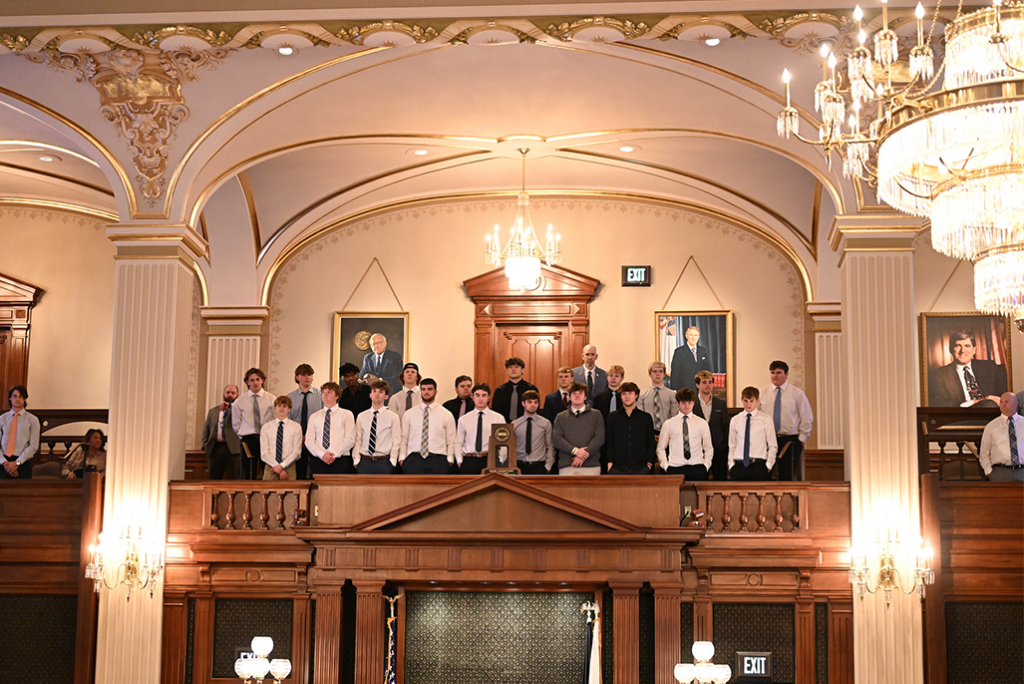‘Friday Night Lights’ in Illinois
The origins of high school football in Illinois date back to the 1880s. Some of the state’s most tradition-rich programs originated before 1900, including schools such as Oak Park, East Aurora, Freeport, Woodstock, Joliet, West Aurora, Pontiac, Pittsfield, and East St. Louis. Many of the greatest legends in the history of the sport played high school football in Illinois, including Red Grange, Otto Graham, Dick Butkus, Ray Nitschke, and Kellen Winslow, to name a few.
The IHSA did not adopt a formal playoff system until 1974. In Chicago, the Prep Bowl series that pitted the winners of the Public and Catholic leagues began in 1934. Elsewhere, schools in different regions of the state claimed ‘mythical’ state championships for many decades.
In small communities and larger cities all across Illinois, thousands of fans head to high school stadiums to watch football on Friday nights. The term ‘Friday Night Lights’ has become symbolic with high school football across the country, and in some communities, many businesses shut down and most of the townspeople head out to watch the games.
High school football in Illinois can be defined by the hundreds of local rivalries that exist to this day. The oldest state series involves two Chicago teams – Hyde Park and Englewood, which dates back to 1889. Other long-standing rivalries include East Aurora vs West Aurora, Champaign Central vs. Urbana, Ottawa vs. Streator, Tuscola vs. Arcola, Oak Park vs. Proviso East, Centralia vs. Mt. Vernon, Peoria Central vs. Peoria Manual, Thornton vs. Bloom, East St. Louis vs. Belleville West, and Princeton vs. Kewanee.

One of the state’s best rivalries didn’t begin until 2010, when Rochester and head coach Derek Leonard joined the Central State Eight Conference. Derek’s father, Ken Leonard, recently retired as the head coach at Sacred Heart-Griffin after a legendary career. The Rochester-SHG matchups in the last 13 years, referred to by many as the ‘Leonard Bowl,’ were considered classics and often close, high-scoring affairs.
“I was honored to recognize the State Champions from the Rochester High School Football Team at the State Capitol! Congrats to head coach Derek Leonard, staff, and players on an undefeated season. We are looking forward to many more in the 95th!”
Many Illinois communities identify with their local high school football teams. Traditions are carried out year after year, with Homecoming parades and week-long celebrations that include alumni reuniting and catching up on old times. The history of certain rivalries can be traced back for generations, such as in the Douglas County communities of Arcola and Tuscola. This rivalry extends beyond the gridiron, when in the 1850s a controversial election saw Tuscola gain the county seat over Arcola. Both towns’ high schools began playing football in the mid-1890s, and the annual football game is known as the ‘Cola Wars.’
In the Mid-Illini Conference near Peoria, the communities of Metamora and Washington sit just a few miles apart. It’s not just a game, it’s simply known as Metamora-Washington week. The teams have met on the football field more than 60 times, with close to an even split. The stands are always packed, and the sidelines are overflowing with fans surrounding the field. The atmosphere is special, and for many people this is the most important week of the year.
In many cases, rivalries involve teams in the same city. In Quincy, when the local public high school (Quincy Senior), and local Catholic high school (Quincy Notre Dame) get together, it’s a rivalry game, but also a community game. With Quincy’s remote location in the far western part of the state, these schools put a lot of miles on buses and vehicles to travel for games. But when they compete against each other, the best talent of the entire city is on display and the entire community can come together to celebrate.
As things change on a yearly basis in Illinois and across the country, the tradition of Friday Night Lights and community celebrations at high school football games remains as strong as ever. And those traditions will continue again all across the state this fall.
